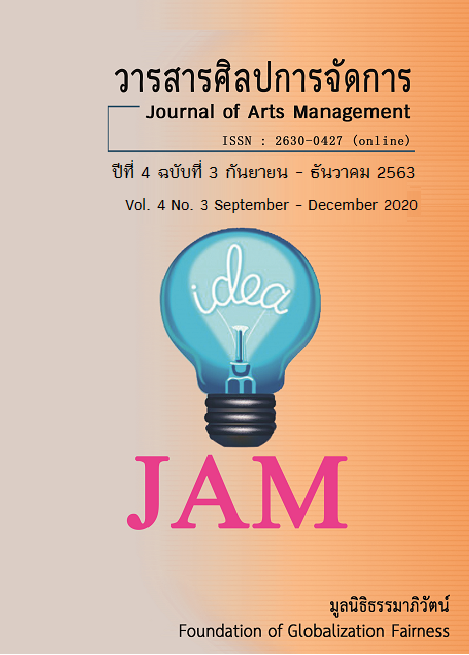Total Quality Management in Modern Organizations by Using Participation and Teamwork
Main Article Content
Abstract
A Total Quality Management (TQM) is an important strategy for modern organizations to improve continual process in reducing and eliminating manufacturing errors. It focuses on improving customer service, training employees to work with effectiveness and increase customer satisfaction. Moreover, it emphasizes an improvement of the quality of an organization’s output which includes goods and services through continual improvement of internal practices. In this article, the researchers have to present the following sections: (1) Components of Total Quality Management (TQM) consisting of the goals and challenges of Total Quality Management (TQM); this section includes a combination of organizational improvement techniques such as employee participation and teamwork, continuous improvement, and customer services and satisfaction; (2) Factors affecting success in the implementation of Total Quality Management; this section presents that cooperation of the workforce is very important and employees should be supported to participate in setting goals and values of the organizations; and (3) Processes of implementation of Total Quality Management (TQM) in the entire organizations, which require involvement of employees, decentralized decision-making, ongoing training on developing leadership, and cultural change.
Article Details
Views and opinions appearing in articles in the Journal of Arts of Management It is the responsibility of the author of the article. and does not constitute the view and responsibility of the editorial team I agree that the article is copyright of the Arts and Management Journal.
References
Anderson, S. (2020). Total Quality Management. Retrieved from www.http:investopedia.com
Beer, M., & Norhia, N. (2000). Breaking the code of change. Boston: Harvard Business School Press.
Burke, W. (2001). Organizational development. Boston, MA: Wesley Publishing.
Channuwong, S. (2018). The relationship between good governance and organizational justice: A case study of Bangkok government officials. Asia Pacific Social Science Review, 18(3), 43-56.
Ciampa, D. (1992). Total Quality Management. Upper Saddle River, NJ: Prentice Hall.
Collins, J. (2001). Good to great. Why some companies make the lead…and other don’t. New York: HarperCollins.
Cummings, T. G., & Worley, C. G. (1993). Organization development and change. St. Paul, MN: West Publishing.
French, W. L., & Bell, C. H. (1999). Organizational development: Behavioral science interventions for
organizational improvement. Upper Saddle River, NJ: Prentice Hall.
Hessenbein, F., Goldsmith, M., & Beckhard, R. (2001). The leader of the future. San Francisco: Jossey-Bass.
Integrated Quality Dynamics, Inc. (1998). TQM: Definition of Total Quality Management. Retrieved from http:///www.iqd.com/hoshin_def.htm.
Juito, S. (2006). Modern organization. Nonthaburi: Sukhothai Thammathirat Open University Press.
Kaewkoon, S. (2019). Modern organization management with modern management. Mahachula Academic Journal, 5(Special edition), 197-208.
Kotter, J. P. (1996). Leading change. Boston: MA: Harvard Business School Press.
Pearce, J., & Robinson, R., Jr. (1996). Strategic management. Boston, M.A.: Time Mirror Higher Education Group, Inc.
Stephen, P., & Mary, C. (2000). Management. Upper Saddle River, NJ: Prentice-Hall.


